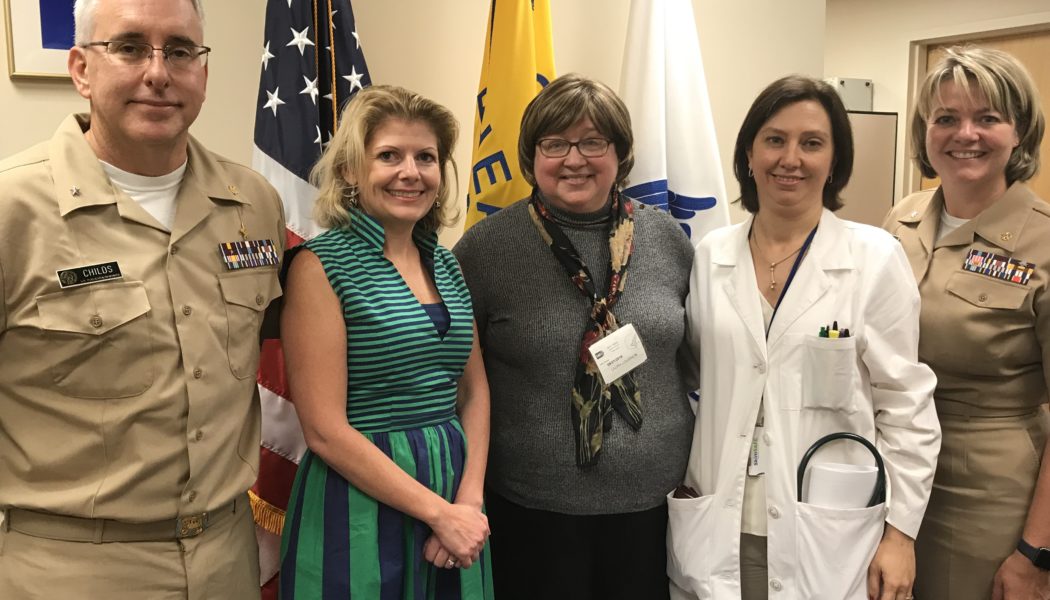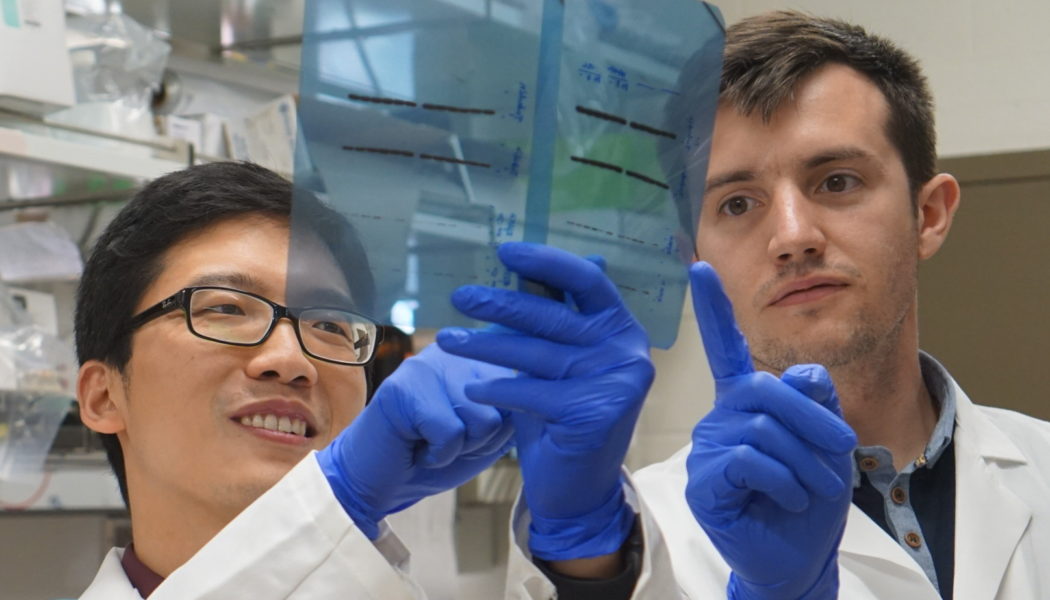News
NIH Clear Cell Kidney Cancer Trial
NIH Trial – HERV-E TCR Transduced Autologous T Cells in People with Metastatic Clear Cell Kidney Cancer. Good News! Since I last shared news of this exciting clear cell kidney cancer trial it has continued to actively recruit. If you are interested there are still spots available. Eligibility criteria include: Being at least 18, having clear cell RCC, measurable disease progression in the last six months; and being positive for HLA-A 11:01. HLA-A 11:01 is only present in a subset of clear cell RCC patients. The NIH, at no charge, can arrange testing for you if you are interested in finding out if you are positive for HLA-A 11:01. Additionally, there are some eligibility requirements related to prior treatments. The trial involves...
KCCURE WELCOMES APPROVAL OF ADDITIONAL COMBINATION THERAPY FOR ADVANCED RENAL CELL CARCINOMA
Washington, DC, ——– – The Kidney Cancer Research Alliance(KCCure) applauds the approval of yet another treatment for advanced renal cell carcinoma by the U.S. Food and Drug Administration (FDA). The latest approved therapy combines EMD Serono’s Avelumab (BAVENCIO) with Pfizer’s axitinib (INLYTA) as first-line treatment for patients with advanced renal cell carcinoma (RCC). Axitinib, a tyrosine kinase inhibitor, was approved in 2012 as monotherapy for the treatment of second-line renal cell carcinoma. Avelumab is a checkpoint inhibitor that blocks the PD-L1 pathway. This is the second approved treatment combining axitinib with a checkpoint inhibitor. The JAVELIN Renal 101 trial investigated the combination of avelumab and axitinib in comparison to sunitinib (SUTENT) in pr...
KCCURE APPLAUDS FDA APPROVAL OF NEW COMBINATION THERAPY FOR ADVANCED KIDNEY CANCER
Washington, DC, ——– – The Kidney Cancer Research Alliance (KCCure) welcomes the U.S. Food and Drug Administration (FDA) decision to approve pembrolizumab (KEYTRUDA) in combination with axitinib (INLYTA) as first-line treatment for patients with advanced renal cell carcinoma (RCC). Pembrolizumab is an anti-PD-1 checkpoint inhibitor that helps the immune system detect and fight tumors cells. Axitinib is an anti-angiogenic targeted therapy that inhibits the growth of tumors. This is the first approval of an immunotherapy agent used in combination with a targeted therapy for the treatment of advanced kidney cancer. Axitinib as monotherapy is already approved for patients who have progressed on one line of therapy. The decision by the FDA was based on the...
What’s your Kidney Cancer Song?
Driving the long trip from DC to our Kidney Cancer Patient Meeting in Chapel Hill, North Carolina last week, a song from Pink came on the radio: Walk me home in the dead of night I can’t be alone with all that’s on my mind, So say you’ll stay with me tonight ‘Cause there is so much wrong going on outside I couldn’t help but think about Kidney Cancer Awareness Month and the stories that we’ve been sharing. A huge part of what we do at KCCure is to help find patients connect with other patients – so that no one feels alone. How many times have you popped into one of our communities in the dead of night? I know I have. And I often see a post from someone who is unable to sleep. Because there is so much going on in their mind. But inevitably, there is someone else w...
New Localized Kidney Cancer Support Group
Have you been diagnosed with localized kidney cancer? KCCure has a new support community just for you. The KCCure 1-2-3 group is a support community for those managing a diagnosis of stage 1, stage 2 or stage 3 kidney cancer. Two thirds of patients will be diagnosed with localized kidney cancer – in other words, renal cell carcinoma in the kidney that has not spread into other organs. For almost all of these patients, the treatment will involve surgery to remove the cancer followed with close observation by their doctor. Despite the fact that most kidney cancer patients fall into this category, few resources exist for them to learn about their disease and connect with others. Our research shows that kidney cancer patients – regardless of their stage – experience high degrees of anxi...
KCCure – Finding Quality of Life – Palliative Care
In the making a difference series, KCCure’s Director of Patient Engagement, Laura Loughlin, shares how connecting with palliative care improved her quality of life during radiation treatment, and explores how palliative care services can improve the quality of life for both patients and their families. When I was first diagnosed in 2016 with stage 4 RCC an oncologist told me that from that point forward my life would be a series of choices balancing quality vs. quantity of life. When I was told this, I was hospitalized with side effects from my surgery and from high dose radiation to my thyroid due to a spread of the RCC. My quality of life was poor, and I was offered palliative care. At the time I was not aware of what palliative care was, but without a doubt palliative care become my...
KCCure Announces Kidney Cancer Research Award of $100,000 to UNC Lineberger
WASHINGTON – The Kidney Cancer Research Alliance (KCCure) announced today that $100,000 has been awarded to Dr. Qing Zhang and Dr. Xianming Tan at the Lineberger Comprehensive Cancer Center, University of North Carolina at Chapel Hill for their kidney cancer research proposal: TBK1 Serves as a Novel Therapeutic Target in Kidney Cancer with VHL Loss. “We are honored to receive this award from KCCure,” said Dr. Zhang. “This funding will provide vital resources for us to examine the efficacy of targeting TBK1 in kidney cancer either alone or in combination with currently FDA approved tyrosine kinase inhibitors. Our research will provide insight on validating TBK1 as novel therapeutic agent to benefit kidney cancer patients.” “Dr. Zhang’s research is highly innovative and could pave the path f...
Making a Difference – Rare Kidney Cancer Research
In the making a difference series, KCCure’s Director of Patient Engagement, Laura Loughlin, will be highlighting organizations making a difference in Kidney Cancer research. In this article we are profiling the work being done at The Rare Cancer Research Foundation (RCRF), with focus on their patient directed consent platform Pattern.org. The Rare Cancer Research Foundation (RCRF) is a 501(c)3 nonprofit organization, committed to helping advance research to find cures for rare and under-represented cancers, including rare Kidney Cancers. This is a critical need as collectively rare cancers are the leading cause for cancer death in the US. The RCRF recognized that to advance research in this area a vehicle that allows patients to authorize tissue donation and collaborate with researchers is...
KCCure joins over 300 advocacy organizations urging Congress to protect Medicare part B
KCCure has joined with 339 other advocacy organizations urging Congress to halt implementation of a new pricing scheme that could negatively impact kidney cancer patients covered by Medicare. The “International Pricing Index” model, proposed by the Centers for Medicare & Medicaid Services (CMS) would affect 50 percent of physicians and hospitals serving Medicare Part B beneficiaries. Infusion based therapies fall under Medicare part B and would be subject to this experimental policy. Reimbursement rates for life-saving kidney therapies would no longer be based on value or quality, but rather on reference prices determined by foreign countries. The model would reduce access in the short term and hinder medical advancement in the long-term. Today, advanced kidney cancer pat...
Making a Difference – The Broad Institute
In the Making a Difference series, KCCure’s Director of Patient Engagement, Laura Loughlin will be highlighting organizations making a difference in Kidney Cancer research. In this first article, we’re profiling work being done at the Broad Institute researching rare kidney cancer. The Broad Institute of Cambridge and Harvard Located in Cambridge, MA the Broad is a non-profit research organization partnered with MIT, Harvard and the five Harvard teaching hospitals. On October 18th I had the opportunity to visit the Broad. I attended a Pre-Launch Workshop for the Rare Cancer Dependency Map Initiative. This initiative provides a patient driven research platform seeking treatments for rare kidney cancers. The research starts with patients’ authorizing donation of fresh tissue...






